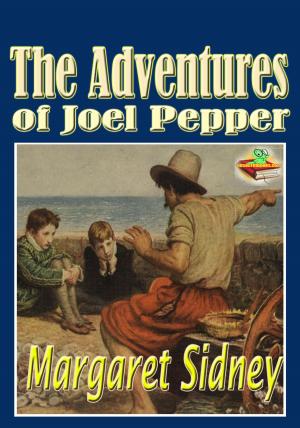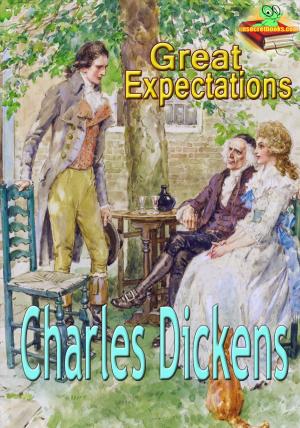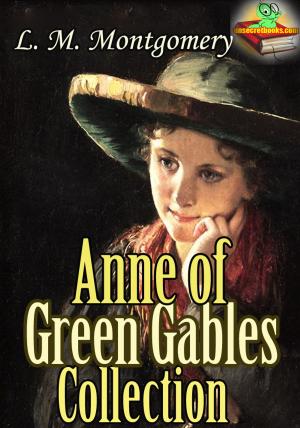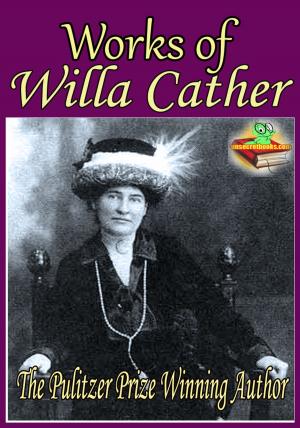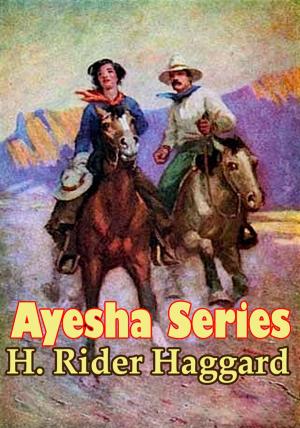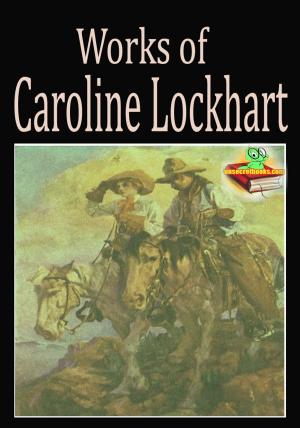Maggie Miller : Cousin Maude : The Cromptons
(3 Timeless Romance Novels)
Fiction & Literature, Classics, Romance, Contemporary| Author: | Mary J. Holmes | ISBN: | 1230000103040 |
| Publisher: | Unsecretbooks.com | Publication: | January 28, 2013 |
| Imprint: | Language: | English |
| Author: | Mary J. Holmes |
| ISBN: | 1230000103040 |
| Publisher: | Unsecretbooks.com |
| Publication: | January 28, 2013 |
| Imprint: | |
| Language: | English |
"Mrs. Holmes is a peculiarly pleasant and fascinating writer. Her books are always entertaining, and she has the rare faculty of enlisting the sympathy and affections of her readers, and of holding their attention to her pages with deep and absorbing interest."
G.W. Dillingham Co., Publishers, NEW YORK.
Mary Jane Holmes was a bestselling and prolific American author who published 39 popular novels, as well as short stories. Her first novel sold 250,000 copies; and she had total sales of 2 million books in her lifetime, second only to Harriet Beecher Stowe.
Portraying domestic life in small town and rural settings, she examined gender relationships, as well as those of class and race. She also dealt with slavery and the American Civil War, with a strong sense of moral justice. Since the late 20th century, she has received fresh recognition and reappraisal, although her popular work was excluded from most 19th-century literary histories compiled by men.
This book is contained 3 Romance Novels.
“Maggie Miller”
Fifteen years have passed away, and around the old stone house there is outwardly no change. The moss still clings to the damp, dark wall, just as it clung there long ago, while the swaying branches of the forest trees still cast their shadows across the floor, or scream to the autumn blast, just as they did in years gone by, when Hagar Warren breathed that prayer, “Lead us not into temptation.” Madam Conway, stiff and straight and cold as ever, moves with the same measured tread through her gloomy rooms, which are not as noiseless now as they were wont to be, for girlhood—joyous, merry girlhood—has a home in those dark rooms, and their silence is broken by the sound of other feet, not moving stealthily and slow, as if following in a funeral train, but dancing down the stairs, tripping through the halls, skipping across the floor, and bounding over the grass, they go, never tiring, never ceasing, till the birds and the sun have gone to rest.
“Cousin Maude”
Maude Glendower was a charming traveling companion, and in listening to her lively sallies, and noticing the admiration she received, the doctor forgot his lost four hundred dollars, and by the time they reached Canandaigua he believed himself supremely happy in having such a wife. John was waiting for them, just as thirteen years before he had waited for blue-eyed Matty, and the moment her eye fell upon the carriage he had borrowed from a neighbor, the new wife exclaimed, “Oh, I hope that lumbering old thing is not ours. It would give me the rickets to ride in it long.” “It’s borrowed,” the doctor said, ‘and she continued, “I’ll pick out mine, and my horses, too. I’m quite a connoisseur in those matters.”
“The Cromptons”
That day was one of the hottest of the season, and the sun was beating down upon the piazza of the Brock House where the Rev. Charles Mason sat fanning himself with a huge palm leaf, and trying to put together in his mind some points for the sermon he was to preach the next Sunday in the parlor of the hotel to the few guests who came there occasionally during the summer. But it was of no use. With the thermometer at ninety degrees in the shade, and not a breath of air moving, except that made by his fan, points did not come readily, and all he could think of was Dives’ thirsting for a drop of water from the finger of Lazarus to cool his parched tongue. “If it was hotter there than it is here I am sorry for him,” he thought, wiping his wet face and looking off across the broad lake in the direction of Sanford, from which a rowboat was coming very rapidly, the oarsman bending to his work with a will, which soon brought him to the landing place, near the hotel. Securing his boat, he came up the walk and approaching Mr. Mason accosted him with, “How d’ye, Mas’r Mason. I knows you by sight, and I’se right glad to find you hyar. You see, I’se that tuckered out I’m fit to drap.”
"Mrs. Holmes is a peculiarly pleasant and fascinating writer. Her books are always entertaining, and she has the rare faculty of enlisting the sympathy and affections of her readers, and of holding their attention to her pages with deep and absorbing interest."
G.W. Dillingham Co., Publishers, NEW YORK.
Mary Jane Holmes was a bestselling and prolific American author who published 39 popular novels, as well as short stories. Her first novel sold 250,000 copies; and she had total sales of 2 million books in her lifetime, second only to Harriet Beecher Stowe.
Portraying domestic life in small town and rural settings, she examined gender relationships, as well as those of class and race. She also dealt with slavery and the American Civil War, with a strong sense of moral justice. Since the late 20th century, she has received fresh recognition and reappraisal, although her popular work was excluded from most 19th-century literary histories compiled by men.
This book is contained 3 Romance Novels.
“Maggie Miller”
Fifteen years have passed away, and around the old stone house there is outwardly no change. The moss still clings to the damp, dark wall, just as it clung there long ago, while the swaying branches of the forest trees still cast their shadows across the floor, or scream to the autumn blast, just as they did in years gone by, when Hagar Warren breathed that prayer, “Lead us not into temptation.” Madam Conway, stiff and straight and cold as ever, moves with the same measured tread through her gloomy rooms, which are not as noiseless now as they were wont to be, for girlhood—joyous, merry girlhood—has a home in those dark rooms, and their silence is broken by the sound of other feet, not moving stealthily and slow, as if following in a funeral train, but dancing down the stairs, tripping through the halls, skipping across the floor, and bounding over the grass, they go, never tiring, never ceasing, till the birds and the sun have gone to rest.
“Cousin Maude”
Maude Glendower was a charming traveling companion, and in listening to her lively sallies, and noticing the admiration she received, the doctor forgot his lost four hundred dollars, and by the time they reached Canandaigua he believed himself supremely happy in having such a wife. John was waiting for them, just as thirteen years before he had waited for blue-eyed Matty, and the moment her eye fell upon the carriage he had borrowed from a neighbor, the new wife exclaimed, “Oh, I hope that lumbering old thing is not ours. It would give me the rickets to ride in it long.” “It’s borrowed,” the doctor said, ‘and she continued, “I’ll pick out mine, and my horses, too. I’m quite a connoisseur in those matters.”
“The Cromptons”
That day was one of the hottest of the season, and the sun was beating down upon the piazza of the Brock House where the Rev. Charles Mason sat fanning himself with a huge palm leaf, and trying to put together in his mind some points for the sermon he was to preach the next Sunday in the parlor of the hotel to the few guests who came there occasionally during the summer. But it was of no use. With the thermometer at ninety degrees in the shade, and not a breath of air moving, except that made by his fan, points did not come readily, and all he could think of was Dives’ thirsting for a drop of water from the finger of Lazarus to cool his parched tongue. “If it was hotter there than it is here I am sorry for him,” he thought, wiping his wet face and looking off across the broad lake in the direction of Sanford, from which a rowboat was coming very rapidly, the oarsman bending to his work with a will, which soon brought him to the landing place, near the hotel. Securing his boat, he came up the walk and approaching Mr. Mason accosted him with, “How d’ye, Mas’r Mason. I knows you by sight, and I’se right glad to find you hyar. You see, I’se that tuckered out I’m fit to drap.”

